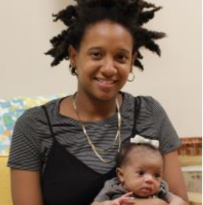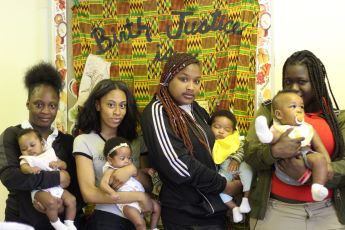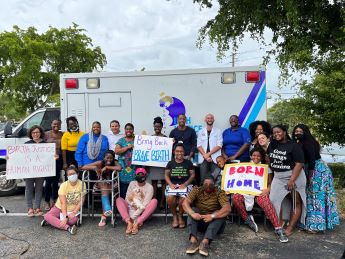Miami Birth Justice Initiative Kicks Off


[MIAMI] – The Southern Birth Justice Network, In collaboration with Catalyst Miami and The Florida Health Justice Network, launched their three-year Miami Birth Justice Initiative. The initiative will be funded by a grant from the Robert Wood Johnson Foundation-Community Solutions for Health Equity. (CM) and (FHJP), have extensive histories working with Jackson Health System. The three organizations know how important it is to be vocal and take an anti-racist stance.
Jackson Health System(JHS), Miami Dade County’s publicly funded hospital system, has precautions against COVID-19, exacerbating long-standing problems by disrupting maternity care systems and further alienating those who need routine prenatal care. The Miami Birth Justice Project will address three intertwined challenges that currently exist at Jackson Health System. Outlined by SBJN, Catalyst Miami and the Florida Health Justice Project, the initiative will address the following;
- Institutionalized racism and bias rob birthing people of their bodily autonomy and right to make informed decisions with consent.
- The unacceptably high Cesarean section rates and unnecessary medical interventions at the Jackson hospitals put birthing people at risk for preventable complications.
- Policy barriers limit access to culturally congruent, holistic community-based midwifery and doula care in Miami Dade County.
Addressing Medical Abuse

In summer 2020, SBJN’s Young Mamas Leadership Institute (YMLI) held a series of four-hour virtual sessions. Ten young Black and Brown activists shared reproductive health stories and strategized about addressing medical abuse that many attested to experiencing at JHS. These young people have committed to continuing this campaign for a year.
SBJN, CM, and FHJP hope it will change expectations among patients and providers in maternity care and that a ripple effect will take place across departments and the lifespan of those—Black, Indigenous, uninsured, undocumented—who depend on Jackson for care from pregnancy and birth onward.
Midwives and the midwifery model of care improve birth outcomes and significantly reduce primary Cesarean section rates. However, a C-section birth increases the risk of hemorrhage, infection, uterine rupture, and other adverse outcomes.
“Young mamas, Black mamas, as well as Indigenous birthing people have long been at risk for poor birth outcomes. With this campaign, we are reclaiming our bodies and our births. We hope to work with local hospitals to: educate nurses and doctors about the Black Midwives Model of Care, advocate for more holistic hospital birthing policies and introduce the Birth Justice framework in clinical settings,” says Jamarah Amani, Executive Director at Southern Birth Justice Network, who hopes that this initiative will reduce incidents of obstetric violence.
Prenatal Care
Approximately 23% of Black moms in MDC do not receive adequate prenatal care; 47% of births in Miami-Dade are delivered by C-section (rates currently at JHS hospitals: Jackson Memorial: 45%, Jackson North: 38%, Jackson South: 29%, as compared to the Healthy People 2020 benchmark of 23%.)
Miami Birth Justice Initiative
In order to shift hospital culture, protocols, and policies that reflect institutional racism and to root new policies and practices in an understanding of birth justice, the Miami Birth Justice Initiative will use the following strategies; Provider education; Public awareness; Community education; Community Organizing/Leadership Development; Hospital Accountability; Amplification; Policy Advocacy and Hospital-level Advocacy.
The Miami Birth Justice Initiative also includes a Birth Justice Bill of Rights. They plan to submit this Bill to JHS to adopt.


